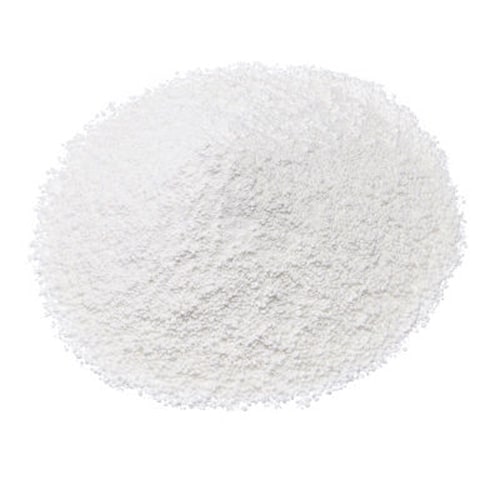Tesaro, Inc. (NASDAQ: TSRO), an oncology-focused biopharmaceutical company, today(March 27, 2017) announced that the U.S. Food and Drug Administration (FDA) has approved Zejula (niraparib), an oral, once-daily poly(ADP-ribose) polymerase (PARP) inhibitor, for the maintenance treatment of women with recurrent epithelial ovarian, fallopian tube, or primary peritoneal cancer who are in a complete or partial response (CR or PR) to platinum-based chemotherapy. Zejula is the first PARP inhibitor to be approved by the FDA that does not require BRCA mutation or other biomarker testing. Tesaro anticipates launching Zejula in the United States in late April.
Zejula is the only PARP inhibitor that has demonstrated a clinically meaningful increase in progression-free survival (PFS) in women with recurrent ovarian cancer, regardless of BRCA mutation or biomarker status, in a randomized, prospectively designed Phase 3 clinical trial. Zejula offers oral, once-daily dosing, enabling convenient administration for maintenance treatment. FDA approval of Zejula is based upon data from the international Phase 3 ENGOT-OV16/NOVA trial, a double-blind, placebo-controlled study that enrolled 553 patients with recurrent ovarian cancer who had achieved either a PR or CR to their most recent platinum-based chemotherapy. Approximately two-thirds of study participants did not have germline BRCA mutations. Progression in the NOVA study was determined by robust, unbiased, blinded central review, to be the earlier of radiographic or clinical progression. Zejula significantly increased PFS in patients with and without germline BRCA mutations as compared to control. Treatment with Zejula reduced the risk of disease progression or death by 74% in patients with germline BRCA mutations (HR 0.26) and by 55% in patients without germline BRCA mutations (HR 0.45). The magnitude of benefit was similar for patients entering the trial with a PR or a CR.
The most common grade 3/4 adverse reactions to Zejula in the NOVA trial included thrombocytopenia (29%), anemia (25%), neutropenia (20%), and hypertension (9%). The majority of hematologic adverse events were successfully managed via dose modification, and discontinuation of therapy due to thrombocytopenia, neutropenia and anemia occurred in 3.3%, 1.9% and 1.4% of patients, respectively. Following dose adjustment based on individual tolerability, the incidence of grade 3/4 thrombocytopenia was low; approximately <1% after month 2. Please see the "Select Important Safety Information" below for warnings, precautions and adverse events.
"We are so gratified to bring this unique new medicine to women with ovarian cancer, and would like to thank the patients who gave selflessly to participate in this trial with the assistance of their caregivers and physicians. We consider clinical trial participants to be the most important contributors to the success of the Zejula clinical development program," said Mary Lynne Hedley, Ph.D., President and Chief Operating Officer of Tesaro. "We would also like to express our appreciation to the FDA for its rapid and thorough assessment of the Zejula application in less than three months after it was accepted for review, as well as our partners at ENGOT for their diligence and care in executing the NOVA clinical trial. Tesaro is committed to supporting women bravely facing ovarian cancer and we are planning to work with patients, healthcare providers and payers to ensure access to this paradigm-changing medicine."
"Despite high response rates to platinum-based treatment in recurrent ovarian cancer patients, the effectiveness of such chemotherapy diminishes over time. Unfortunately, progression free survival generally gets shorter after each subsequent treatment with a platinum-based chemotherapy regimen. Therefore, a treatment like Zejula that can increase progression-free survival after platinum therapy is very meaningful to patients and their families," said Dr. Ursula Matulonis, M.D., Director, Gynecologic Oncology at Dana-Farber Cancer Institute and Professor of Medicine, Harvard Medical School. "Until recently, there have been few treatment advances for women with recurrent ovarian cancer and even fewer options available for women who do not harbor BRCA mutations. We are excited to have the opportunity to offer appropriate patients an oral, once-daily maintenance treatment that reduces the risk of cancer progression and extends the time between courses of chemotherapy for patients who have few treatment options."
"The approval of Zejula, the first maintenance therapy approved in the U.S. for recurrent ovarian cancer, is extremely encouraging for the ovarian cancer community," said Dr. Mansoor Raza Mirza, M.D., ENGOT-OV16/NOVA Study Chair and Medical Director of the Nordic Society of Gynaecological Oncology (NSGO). "The unique design of the NOVA study, which included women both with and without germline BRCA mutations, allowed us to determine that Zejula provides significant progression-free survival improvement in a very broad patient population. Having the option of prescribing Zejula without the need for a diagnostic test could fundamentally change the way we treat this disease from ‘watch and wait’ after a response to chemotherapy, to active treatment. With the significant increase in PFS observed in NOVA, I believe that we are changing the course of disease for patients with ovarian cancer, regardless of platinum sensitivity and independent of BRCA mutation or biomarker status."
"Women with recurrent ovarian cancer often experience considerable fear and anxiety about future recurrences," said Audra Moran, President and CEO of Ovarian Cancer Research Fund Alliance. "Zejula may offer patients and their families a treatment option during this stressful period. The ovarian cancer community is eager for new treatment options, and we are glad that Zejula will be available to women that have completed their platinum-based chemotherapy."





 ALL
ALL Pharma in China
Pharma in China Pharma Experts
Pharma Experts Market News
Market News Products Guide
Products Guide Brand Story
Brand Story























 Pharma Sources Insight January 2025
Pharma Sources Insight January 2025








